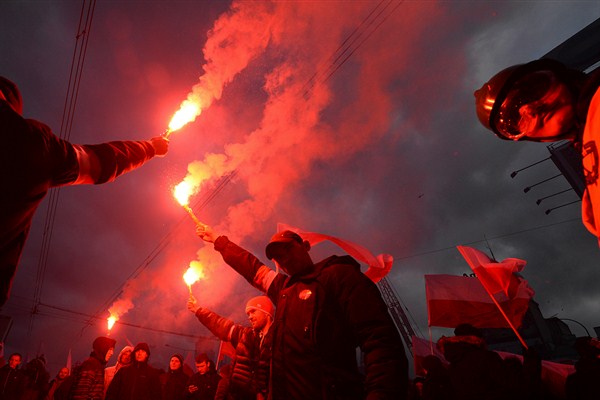An annual march on Poland’s Independence Day has become a magnet for ultranationalists from across Europe. In 2017, the march drew 60,000 neo-fascists into the streets. If a major European country becomes a hub of far-right radicalism and xenophobia, the ramifications for Europe and the West would be damaging.
On Nov. 11, the anniversary of the end of World War I, Poland celebrates its national Independence Day. This year, the most popular of the many events held that day took on a shocking tone, capturing the world’s attention and raising a sense of alarm.
While most of the observances unfolded as one would expect in a standard patriotic event, the biggest of all was the one sponsored by extremist right-wing groups, including the heirs to Nazi organizations. Their rally, with some 60,000 marchers parading through the streets of Warsaw, featured brazenly racist, Islamophobic, anti-Semitic and homophobic banners and chants.

